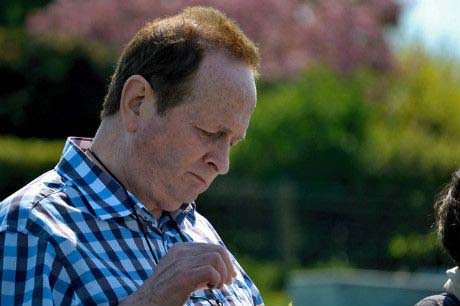Dealing with Death of a Parent

Dealing with death of a parent in adulthood is a process that often fundamentally alters the lives of those who experience it.

Psychotherapists know that experiences of the death of a parent will vary widely. In this post, we’ll confine ourselves to the situation of adults losing a parent. But, even so, there’s immense variation in peoples’ experience. Furthermore, as University of California psychologist Robert E. Kavanagh reminds us, there is great importance for us in being honest about our unique emotional response in the face of death.
x
Forms of Grief

Adult loss of a parent takes many forms, and many, but not all occur during the mid-life transition or later.
Now, certainly, an adult may experience the loss of one or more parents while still relatively young, often with a great sense of loss, grief — and unfairness.
Or, perhaps the parent may pass away in later life, possibly after a short illness, leaving us with a grateful sense that he or she lived a good, long life.
Then again, there are many instances where the person passes after a prolonged difficult physical illness or after suffering from a debilitating condition such as dementia/alzheimer’s, Lou Gehrig’s, or Parkinson’s disease. Such a condition may require intense care-giving, and may result in burn-out, exhaustion or illness, and/or even in outright trauma in an adult child who is a care-giver.
In any of these cases, the adult child undergoing the experience will likely feel that they have undergone a major life transition.
Loss of the Same Sex Parent
In particular, loss of the same sex parent can have a profound effect.
In important ways, the child models her- or himself, consciously and unconsciously on the same sex parent. This means that her/his persona, the way he/she presents to the world, has been formed greatly by the same sex parent. It also means that the shadow, those parts of ourselves that we prefer not to acknowledge, has similar linkages and congruities to the way that our parent was with us, and the way that we perceived them interact with others.
In the loss of a same sex parent, the individual may end up acutely feeling his or her own mortality. It can be as if we see a kind of an image of our own passing, in the same sex parent. It may also mean that we feel a certain sense of aloneness in the world.

The Orphan Archetype
If the parent who has passed away is the last living parent of the individual, this may be the occasion of the activation of the orphan archetype. The individual may confront aspects of him- or herself that are like an abandoned child. As James Hillman tells us, this
…implies a collapse into the infantile realm of the child. Our strong, ego-centered consciousness fears nothing more than just such a collapse.
Yet such an emergence of the adandoned child in us may be just what we need. It can be very hard to feel such aloneness, and to feel that we now exist fully in our own right in the world. Yet, simultaneously, it can mean that we have the chance to determine our own direction in life, and to live out our own most basic passions, in a way that is truly and uniquely our own. Grief and the opportunity to live out our own legacy may be woven together.
Dreams and the Reality of Death
Depth case studies recognizes that it’s not unusual or abnormal to encounter a deceased parent in our dreams. Certainly dreamwork seems to have some important connections with the ways that we undergo the process of grief work. Dreams of our parents may also have very important roles in the individuation process, as we work through the true — and often very complex — meaning of who a parent was for us, and the impact they have had on us, in both conscious and unconscious ways.
Brian Collinson, Registered Psychotherapist & Jungian Analyst
[cta]
